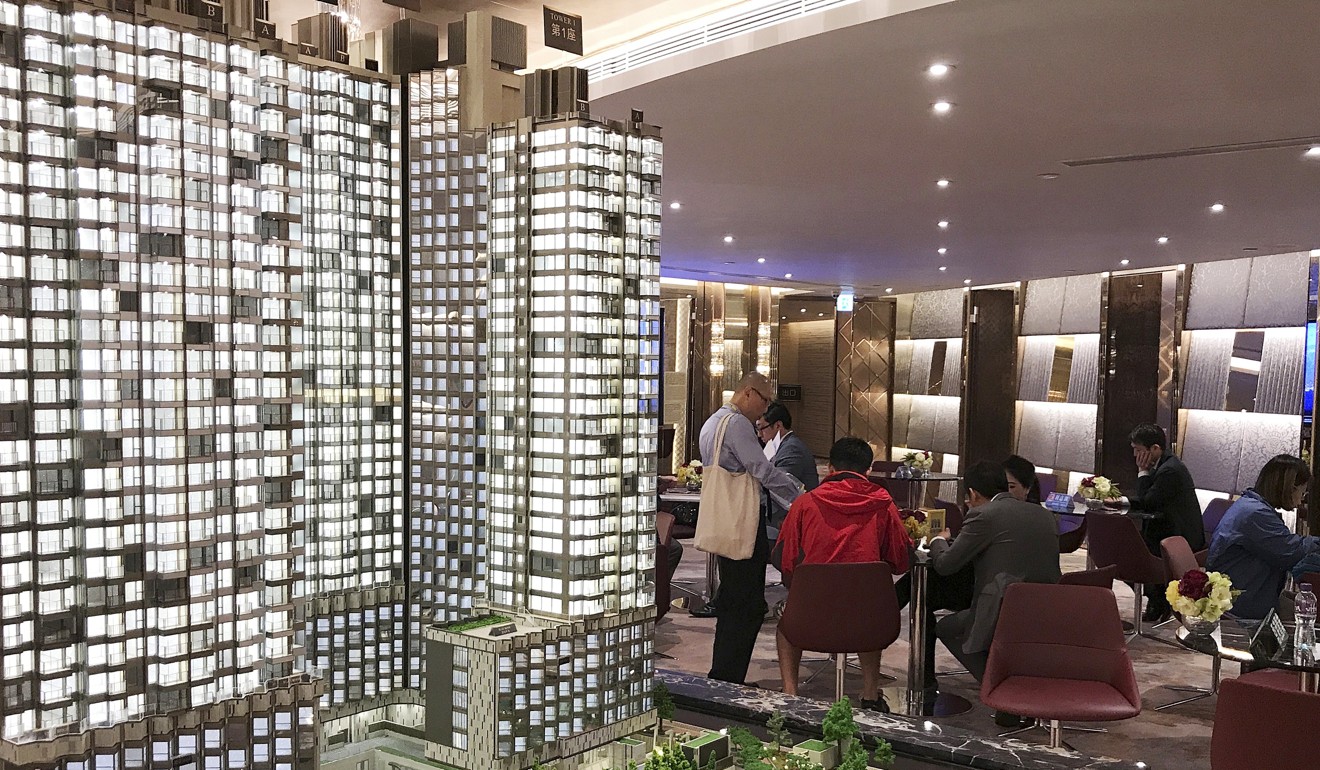
As mainland continues to tighten its grip on the housing market, developers shift focus to Hong Kong
Summit in Hong Kong hears that some major players think Beijing’s tightening policies to regulate home purchases could last another three years
Mainland housing developers are turning their attention increasingly to Hong Kong, as Beijing continues rolling out unprecedented tightening policies to regulate home purchases, which experts now fear could last for up to three years.
Since last October, 55 mainland cities have together imposed around 160 new policies to strengthen curbs on frenetic buying and skyrocketing property prices.
Lin Feng, chief executive officer at CIFI Group, joined representatives of other listed mainland developers at a summit in Hong Kong on Thursday to discuss the growing interest in Hong Kong.
He said the latest round of regulation is strikingly tougher that previous years, and that his earliest expectation of any relaxation in policies is the middle of next year.
The [Chinese] government is now looking to do away with what has become one of the fundamental reasons to buy a home, which is as an investment. It is stressing that homes are for accommodation [as opposed to] investments
“The objectives this time around are different. In the past, they [regulations] were set to tweak the market,” he said.
“But the government is now looking to do away with what has become one of the fundamental reasons to buy a home, which is as an investment. It is stressing that homes are for accommodation [as opposed to] investments.”
Ding Zuyu, chief executive officer of E-House Holdings, said: “While stockpiles and prices still increase in third- and fourth-tier cities, they are diminishing and prices are stagnating in first- and second-tier cities.”
Ding said the challenging environment in the mainland is likely to drive more developers to set up shop in Hong Kong, where land costs for estates account for a much less of a percentage of total development costs.
“In the mainland’s first-tier cities (Beijing, Shanghai, Shenzhen and Guanzhou), the cost of land can easily account for 70 per cent of the total cost of a project, compared with less than 50 per cent in Hong Kong,” he added. “And without mainland developers now fighting for this land, that number might be well under 40 per cent.”

He said that as competition in the Hong Kong market intensifies, he expects the cost of land will eventually account for over 60 per cent of total costs in coming years.
Choi Kam Keung, a property research director with Citibank, thinks the mainland’s ongoing tightening of the market could last three years as the current administration has become less focussed on GDP growth.
“This round of tightening will last much longer,” Choi said, “The government is treating this as a 3-year project. Unless GDP growth plunges, it will not relax its policies.”
“I estimate the earliest likely relaxation might come at the end of next year – that would be the most ideal scenario,” he added.
Hosted by the China Real Estate Association and the China Real Estate Research Association, the summit also released annual research on the country’s top listed developers.
The study shows that collectively they were worth 71.7 billion yuan last year, a 22.4 per cent annual increase. Their revenue reached 14.72 billion yuan, a 25 per cent increase, but the growth rate in asset size dipped 15.9 per cent compared with 2015.
China Vanke, China Overseas, Evergrande, Country Garden and China Poly are named as Chinas top five developers.

